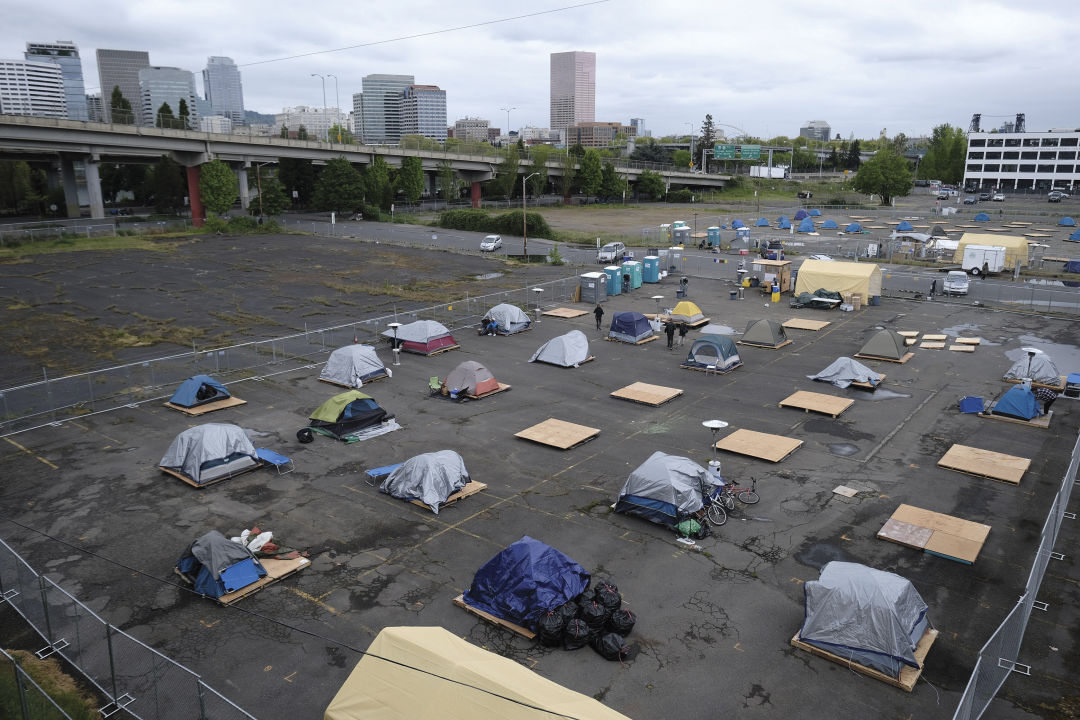
On a cold December day three years in the pastI made the novel choice to get to know my houseless neighbors. This was on the top of the pandemic, when a homeless camp had shaped round Sunnyside Environmental Faculty, and members of the Sunnyside Neighborhood Affiliation determined to introduce ourselves.
We sought skilled assist: Raven Drake, a supervisor with Road Roots, joined us one morning to say hey by “knocking” on people’ tents: you say “knock-knock!” and establish your self, and announce what items you come bearing—in our case, cold-weather gear and clementines. A handful of campers joined us close to the college’s play space, and we slowly shaped a circle on the blacktop to ask what they wanted most.
Their solutions? Greater than something, they needed showers, pay as you go laundromat playing cards, and clear garments.
We determined then to supply entry to fundamental hygiene providers that the Metropolis of Portland wasn’t delivering in our neighborhood. One neighbor volunteered to be the “trash coordinator,” which required calling the town to demand common trash service. I took on hygiene: the Groves Church supplied us use of its showers twice weekly on the Sunnyside Neighborhood Home (previously the historic Sunnyside United Methodist Church), so long as we all the time had two volunteers on website and required masks.
I shamelessly requested neighbors, pals, and work colleagues to volunteer. Our program attracted folks like S., who introduced his radio to the bathe and sang at prime quantity together with Led Zeppelin. There was J., whose bar had shuttered through the pandemic, and who despatched me texts saying, “I recognize you and what you’re doing. Thanks.” And R., a younger and aimless espresso connoisseur caring for a schizophrenic former girlfriend, who made us pour-over espresso with native beans he’d purchased with meals stamps.
Earlier than I knew it, I used to be coleading the Sunnyside Bathe Venture, which is now a 38-person volunteer program offering entry to showers, bogs, and clothes three days per week, serving round 100 locals per 12 months with 18 bathe slots per week. To make certain, we had challenges, requiring us to develop incident protocols. Some houseless people—not essentially our regulars—broke church home windows when advised they couldn’t camp on the entrance steps. One common wandered into different elements of the church and stole a wi-fi speaker from the basement, which we changed. One other harassed a number of tenants and was banned from the constructing.
However these had been exceptions. My biggest pleasure has been befriending the regulars, like Mark McCarthy, a gregarious man in his early 60s and 17-year veteran of dwelling on the streets. He efficiently kicked a meth behavior, and lived in doorways somewhat than camps as a technique to keep away from medication. A volunteer ultimately linked him to a case supervisor at Northwest Pilot Venture, and he has since gained housing and is beginning to tackle long-ignored well being points. One other common, Marshall L., additionally discovered housing by way of Northwest Pilot Venture and helps others by connecting them to us for showers and extra providers.
The truth is, many of those folks I write about are actually off the streets—partly due to the human connections they made with volunteers on the Bathe Venture. Ought to or not it’s an ideal shock that chatting with somebody week in and week out would possibly construct belief, and that they may ask us to assist them discover stability?
What’s astonished me and different volunteers is how this straightforward act of serving to our unhoused neighbors entry fundamental hygiene providers—which our metropolis and county ought to have found out supply by now—has solid neighborhood. At a time when many individuals put up surveillance movies of houseless residents on Nextdoor, we’re laughing with our neighbors’ jokes, commiserating with their dangerous information, and providing path combine and tea. Whereas different Portlanders might understand them as scary, I truly really feel safer in my neighborhood as a result of I do know most of our houseless neighbors on a first-name foundation.
These relationships are two-way streets. A neighbor named Kris often introduced us bouquets of wildflowers when she got here to bathe. One common fastened my bike, and wouldn’t settle for money as cost, so I baked him chocolate chip cookies. Mark has introduced me beautiful “floor scores”—from cloisonné earrings to a muffin tin.
We’ve expanded, determining insurance policies and procedures, designing flyers, organizing Narcan trainings, and operating wants assessments for our company. We’ve paid one in every of our unhoused guests a small stipend for his website supervisor work, due to a grant from Southeast Uplift. I let you know this to not brag however to display that neighborhood associations don’t have to be bastions of privilege and not-in-my-backyard insurance policies. They are often locations of activism and radical social change. Or on the very least, sources of sensible options to the very actual challenges of dwelling exterior.
I used to stroll previous houseless folks on the road, feeling incapable of serving to, not to mention partaking. Now, once I jog at Laurelhurst Park or pop into the Belmont library, I say hey to the folks I do know, generally even stopping for a chat. Our unhoused neighbors are simply that: our neighbors.
Hannah Wallace is a journalist and stepmom who lives along with her husband in Southeast Portland.



